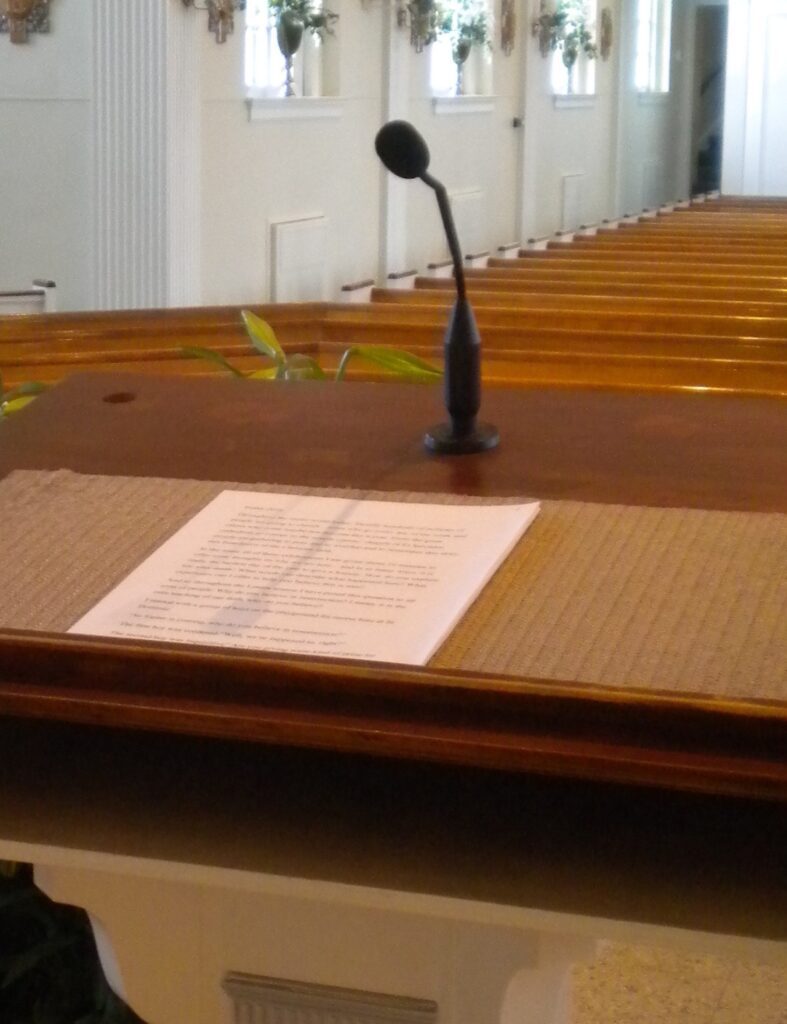
A friend was deciding whether to volunteer to be a reader at Mass. I warned her that if she did read, she had to be ready for feedback, not from the mike but from people! She might hear things like “You were too soft.” “You were too loud.” “You were too fast.” “You were too slow.” “You looked up too much.” “You didn’t look up enough.” “I couldn’t understand you.” “You didn’t speak into the mike.” Performing before a group takes courage. Criticism can be painful because it bruises our egos. We like to think we’re perfect.
Criticism can be devastating. An older sister never sang. Why? A teacher had ordered her not to sing but just move her mouth during a class performance.
Criticism can be helpful when it leads to improvement. Teachers, trainers, and coaches are expected to level criticism as a form of giving advice. Wise people welcome this kind of criticism. I appreciated it when my first editor told me my article lacked anecdotes. Now I’m careful to sprinkle them through my writing and talks. And what woman isn’t thankful when someone points out that her slip is showing or that the label of her top is sticking up on her neck?

Lately we’ve been listening to Jesus justly criticize the hypocritical religious leaders of his day. They were not appreciative, and it did not lead to their improvement. On the other hand, these leaders were highly critical of Jesus, and their criticism was baseless and ridiculous.
Sometimes we need to accept criticism with a grain of salt. We should consider the source. Is the critic knowledgeable? reliable? What is their motive for the criticism: Are they trying to be kind or are they just being mean? Once someone remarked to me, “Your dress is too short for someone as tall as you.” (Although it covered my knees!) When I told my smart sister this happened, she replied sarcastically, “Yeah, you’re really tall!” (I’m 5’3″.) “They’re just jealous!” Well, that put things in a different perspective.
Now the other side of the coin. When should we criticize someone? Of course, we’re obligated to gently, not sharply, inform people when they are endangering themselves or others. But sometimes we are quick to judge people and find it hard to resist pointing out their flaws. Yesterday Bishop Amos was giving examples in his homily of how to serve people with love. He concluded with “not voicing a criticism.” In other words, sometimes we need to “let it go.”
Before criticizing a person, we ought to honestly consider our motive. It also helps to ask ourselves the three questions, “Is it true? Is it kind? Is it necessary?” Would my comment be constructive criticism, or merely giving in to the temptation to hurt someone’s feelings and make myself feel better? What would Jesus do? Or Mary?
• When have you appreciated constructive criticism?









